This month Pete Moser dedicates the bell ringing to his friends in Hong Kong. May you live in peace and may your communities grow stronger in the face of terrible hostility.
Pete Moser's playing of the bell at high water springs brings out its extraordinary harmonic properties this month.
Photos from throughout May.... One of the unusual features of the Morecambe Bell is that it only rings due to the waves at higher tides, those either side of springs.
Pete Moser and friend celebrate the highest tide in December 2020.Wrapped up warmer than in August , and with less wind. Thanks, all!
Exploring the full range of harmonics, using a variety of mallets and strikers - multi-instrumentalist Pete Moser is at it again.
The unusual installation of this bell took place in challenging weather in February and March of 2019. After extensive engineering work to the Stone Jetty, undertaken by VolkerStevin, the bell was hoisted into place and final adjustments were made by Marcus Vergette - shown in the photo.
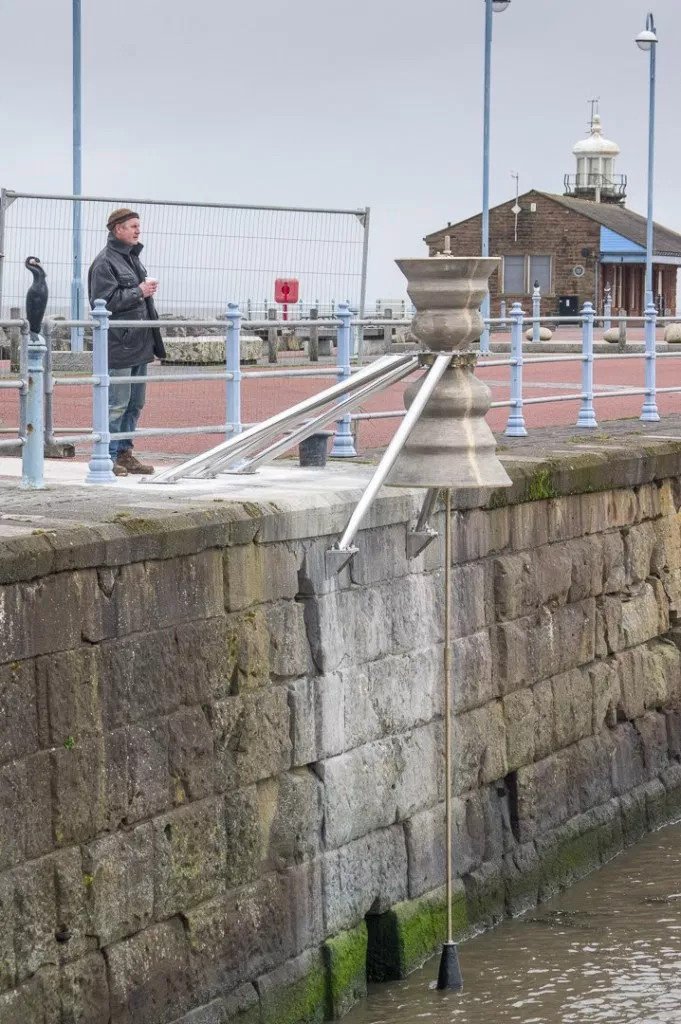
This is a project of the Morecambe Artist Colony. Much of the work was undertaken by Sian Johnson, to whom profound thanks.
More photos of the installation:
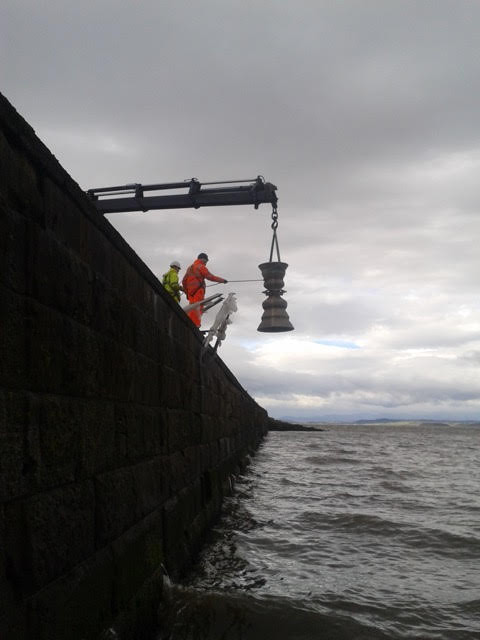
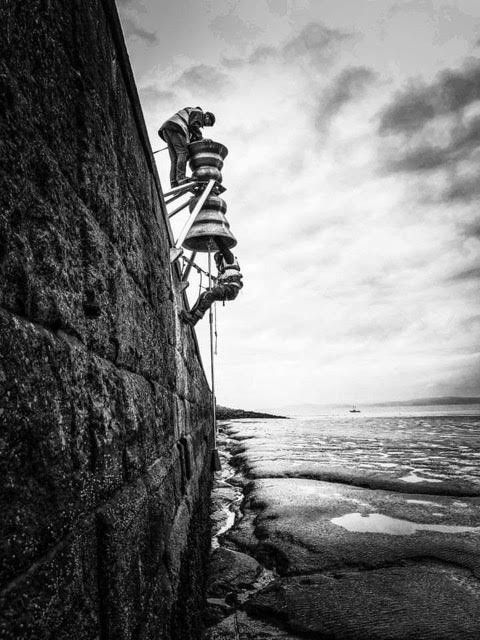
We are continuing to develop our Citizen Science programme, after the long break enforced by the lockdown, furloughs, etc etc.
At the heart of this project is the enormously powerful tool iNaturalist. We have created what the platform calls a 'place' - see below. It is deliberately somewhat larger than the immediate environs of the bell.
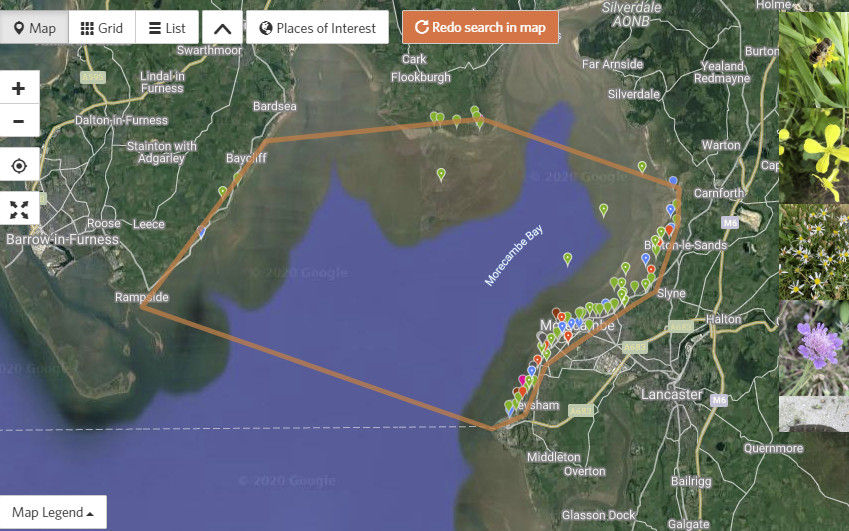
Within that place we have created a 'project', which will be central to data collection in the area. Much the best way to explore that is to use iNaturalist itself - see the link to the project here.
Having said that, examples of the observations are presented below. Click on any of the observations for more details.
Here is a group at our first meeting, in rather bleak weather on March 3rd 2020. The tide was out, always handy if you are going to explore the foreshore.
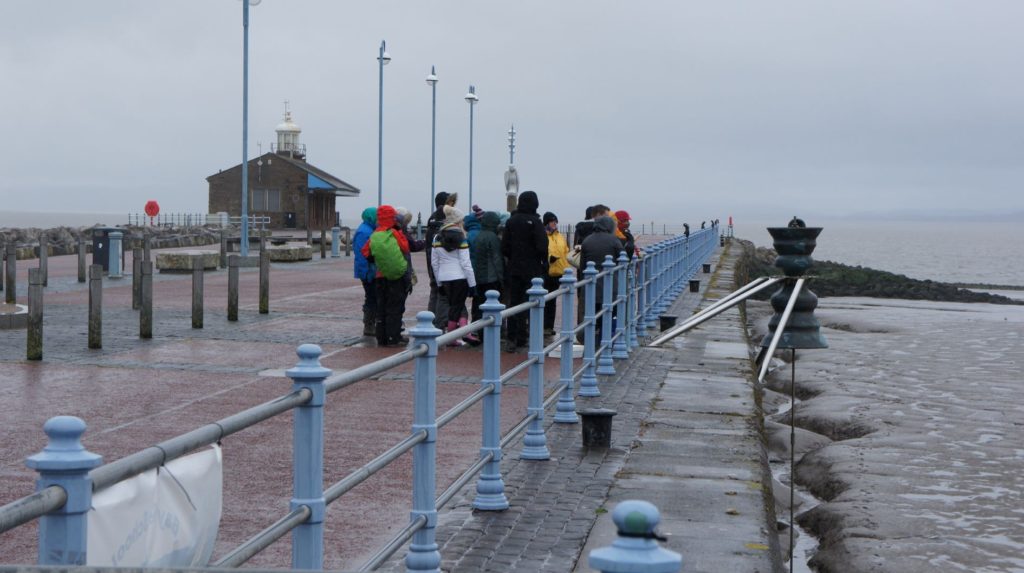
This is a different way of ringing a Time and Tide Bell... Multi-instumentalist and composer Pete Moser uses a soft and hard mallet. There are plans to repeat this every month....
Pete Moser of Morecambe wrote this song. It was sung by a group of schoolchildren at the formal opening of the bell on June 7 2019.
The song underlines one of the key themes the bells explore - climate change, and hence rising sea levels.
We'd love you to sing it too. Here's the score - you can download it here.
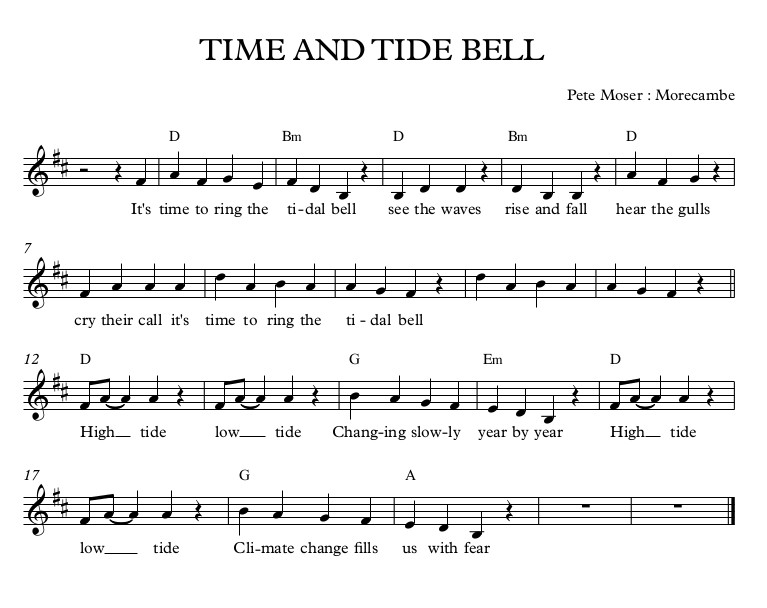
On March 3rd 2020 about 20 people gathered to spend the day in the Platform, the splendid venue based on the former railway station near the Morecambe seafront. It was a grey day, and rather a damp one, for the session outside exploring the marine life near the bell (fortunately it was low tide).

There was an excellent briefing on the subject by Jack Sewell from the Marine Biological Association. After the session exploring the foreshore near the bell the afternoon was spent developing ideas for a citizen science project linked to the bell.
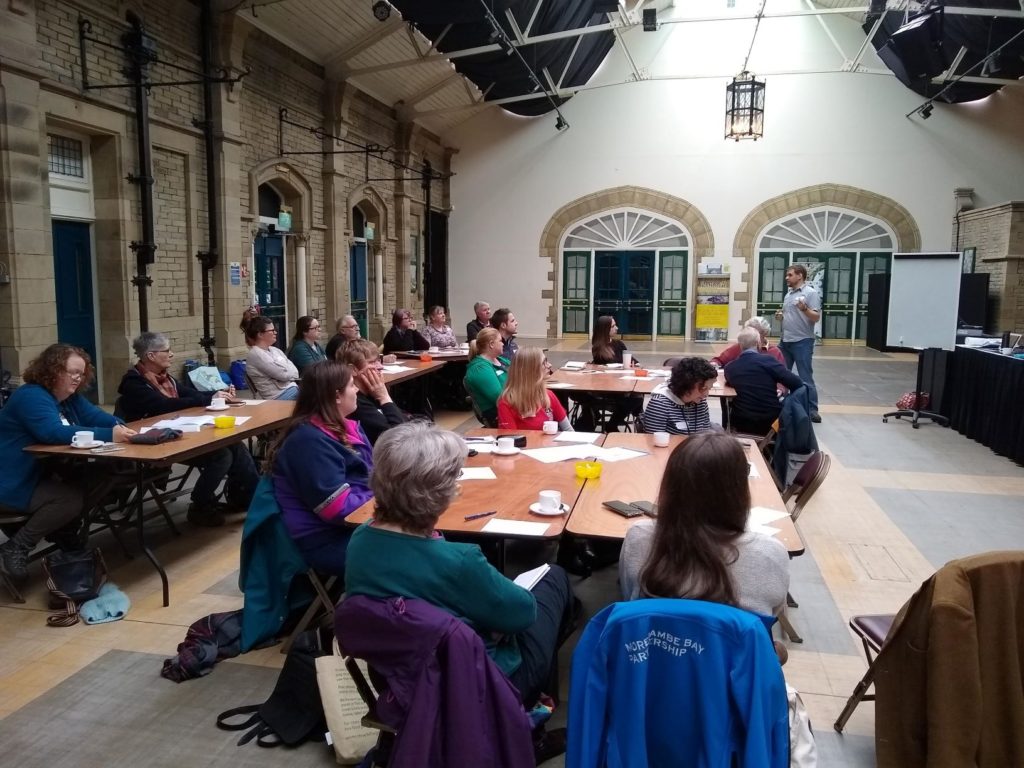
As with the meetings in Appledore and Mablethorpe a number of very promising ideas were put forward for a programme of Citizen Science activity, which will be considered, distilled, and shared with whoever from the group who is interested as soon as possible.
This bell features much the most complex and informative Interpretation Board of any of the bells. In particular it focusses on the change in sea temperature caused by climate change. That is of concern to all, of course, but is of especial concern in Morecambe Bay, where it appears that problems with the extremely important local fisheries may be linked to changes in sea temperature.
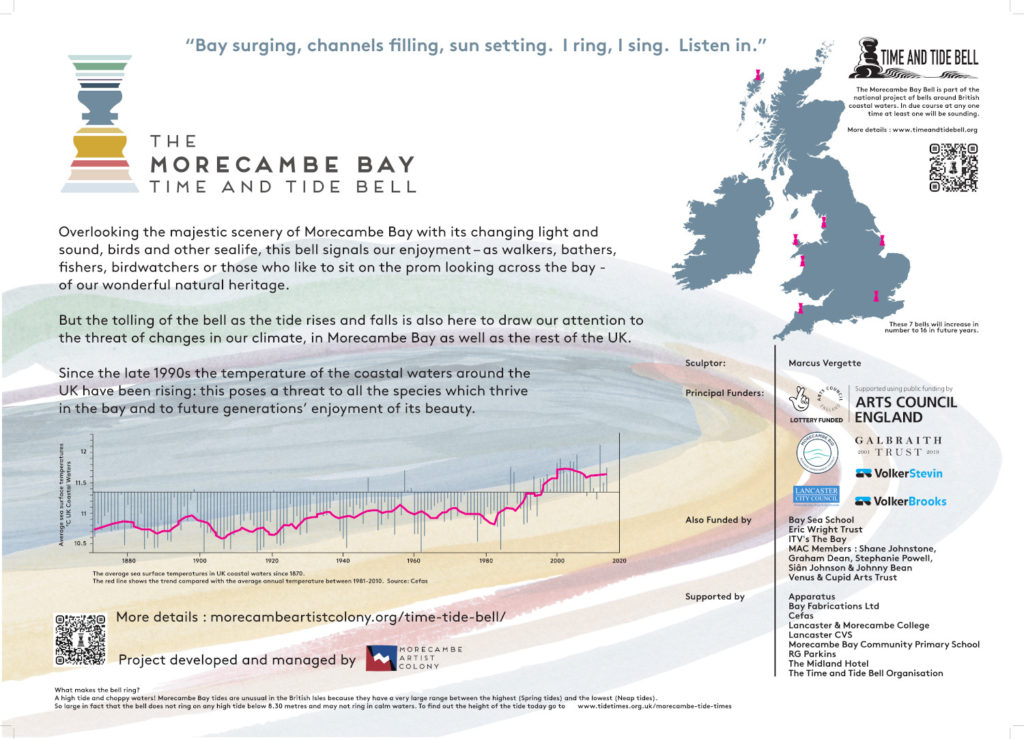
The view over Morecambe Bay
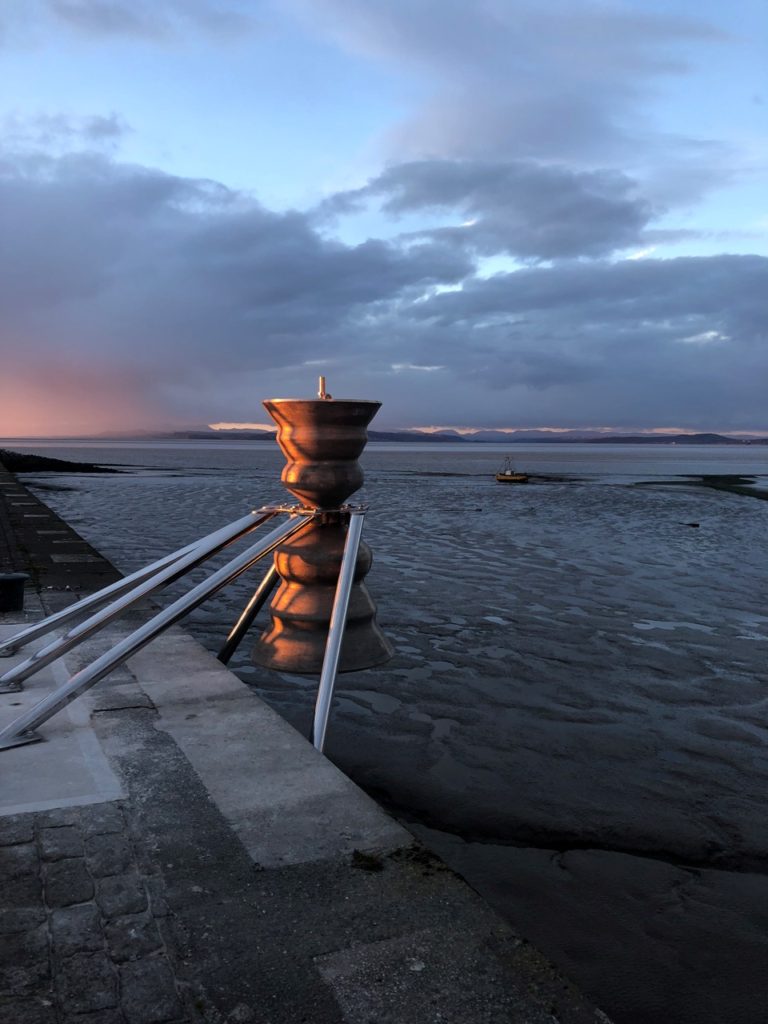
This bell is mounted higher above the sea than any of the other bells. As a result, the wave-catcher exerts much greater forces on the clappers in the bell.
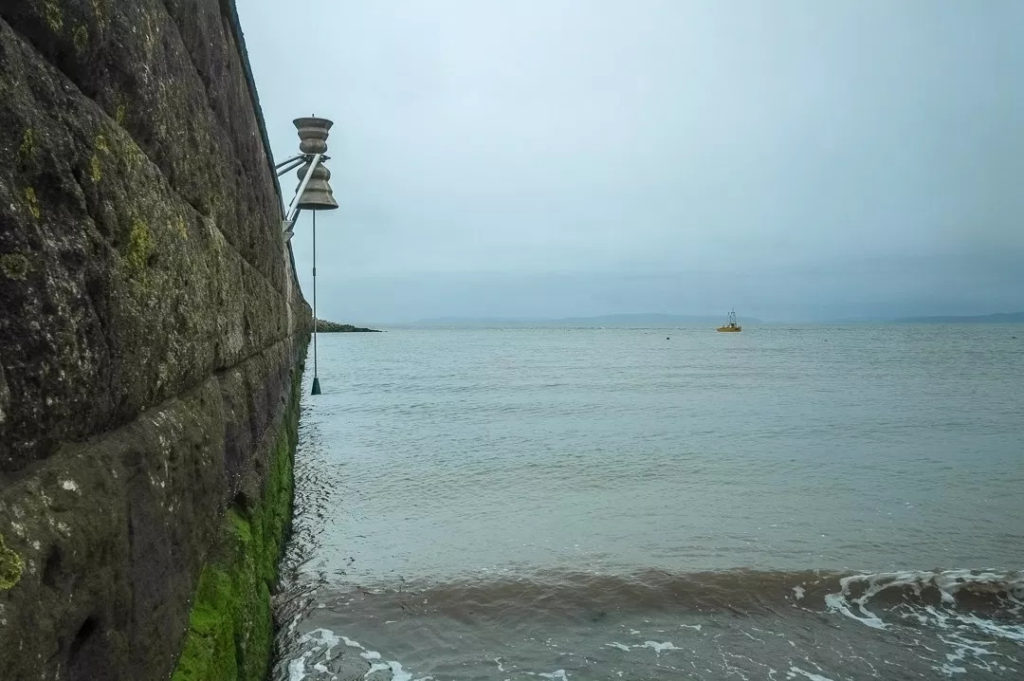
Although it has no link to the bell, Morecambe Bay is now known not least for a tragedy that took place on February 5, 2004.
David Anthony Eden, Sr., and David Anthony Eden, Jr., a father-and-son from England, had unlawfully hired a group of Chinese workers to pick cockles; they were to be paid £5 per 25 kg of cockles, (9p per lb), far less than the typical local rate at the time. The Chinese had been imported unlawfully via containers into Liverpool and were hired out through local criminal agents of international Chinese Triads. The cockles to be collected are best found at low tide on sand flats at Warton Sands, near Hest Bank. The Chinese workers were unfamiliar with local geography, language, and custom. They were cut off by the incoming tide in the bay around 9:30 p.m.
The emergency services were alerted by a mobile phone call made by one of the workers, who spoke little English and was only able to say "sinking water" before the call was cut off. Twenty-one bodies, of men and women between the ages of 18 and 45, were recovered from the bay after the incident. Two of the victims were women; the vast majority were young men in their 20s and 30s, with only two being over 40 and only one, a male, under 20. Most of the victims were previously employed as farmers, and two were fishermen. All the bodies were found between the cockling area and shore, indicating that most had attempted to swim but had been overcome by hypothermia. Four of the victims died after the truck they used to reach the cockling area became overwhelmed by water. A further two cocklers were believed to have been with those drowned, with remains of one being found in 2010.
At the subsequent hearing, British cocklers returning to shore on the same evening were reported to have attempted to warn the Chinese group by tapping their watches and trying to speak with them. A survivor testified that the leader of the group had made a mistake about the time of the tides. Fourteen other members of the group are reported to have made it safely to the shore, making 15 survivors in total. The workers were mainly from the Fujian province of China, and have been described as being untrained and inexperienced.
The text above is from Wikipedia



